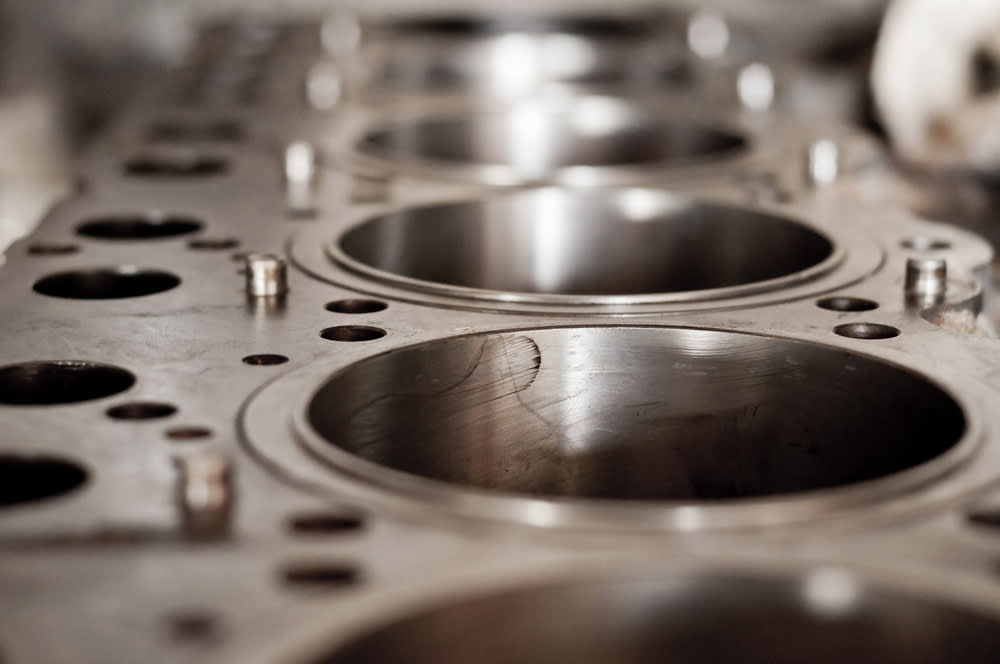

What is a Cylinder?
The cylinder is the part of the engine where combustion takes place. The combustion in the cylinder is what powers the vehicle. Depending on the type of vehicle, a normal engine may have as few as two cylinders to as many as 12 (the Bugatti Chiron has a 16 cylinder engine!).
A misfiring cylinder can cause a proportional loss of power. For example, if one cylinder misfires in a four-cylinder engine, the car will lose 25 percent of its power during each misfire.
Cylinder Misfire Symptoms
Some common cylinder misfire symptoms include:
- Power loss and strange vibrations
- Loss of engine spark
- Imbalanced air/fuel ratio
- Intermittent misfires
When you notice signs like power loss, strange vibrations, and shaking while idling, it could be a clear indication of a misfiring cylinder. This misfire leads to decreased engine performance and compromised fuel economy, as the remaining cylinders strain to compensate for the loss of power.
Additionally, a loss of engine spark due to worn or damaged components like spark plugs or ignition coils can contribute to cylinder misfires. As these parts degrade further, the frequency of misfires increases, affecting the engine's overall performance.
Another factor contributing to cylinder misfires is an imbalance in the air/fuel mixture. A clogged or dirty fuel injector, along with issues like a sticking EGR valve, can disrupt the ratio of gasoline to air. Such misfires are often more noticeable at idle and can affect all cylinders rather than just one.
Intermittent misfires, occurring under specific conditions like cold weather or heavy loads, can also be challenging to diagnose. These issues may stem from various components like vacuum lines, intake manifold gaskets, timing belts, or even the valve train, requiring expert attention for proper repair.
Is it Safe to Drive with a Misfiring Cylinder?
No, it is not safe to drive with a misfiring cylinder. A misfiring cylinder poses significant risks and can lead to various safety concerns. Loss of power and acceleration compromises your ability to respond quickly to changing road conditions, while abnormal vibrations affect vehicle stability and handling.
Ignoring these symptoms can result in prolonged driving damage, like wear on critical engine components. Promptly addressing a misfiring cylinder is crucial to maintain safe driving conditions and prevent further vehicle damage.
Cylinder Misfire Engine Codes
A diagnostic trouble code (DTC) is a standardized system used in vehicles to identify and communicate issues detected by the OBD-II system. There are many trouble codes that are associated with a misfiring engine, ranging from P0300-P0312.
If any of the following codes are set in your vehicle, it means you have a misfiring cylinder and should contact a mechanic for a diagnostic:
- P0300: Random/Multiple Cylinder Misfire Detected
- P0301: Cylinder 1 Misfire Detected
- P0302: Cylinder 2 Misfire Detected
- P0303: Cylinder 3 Misfire Detected
- P0304: Cylinder 4 Misfire Detected
- P0305: Cylinder 5 Misfire Detected
- P0306: Cylinder 6 Misfire Detected
- P0307: Cylinder 7 Misfire Detected
- P0308: Cylinder 8 Misfire Detected
- P0309: Cylinder 9 Misfire Detected
- P0310: Cylinder 10 Misfire Detected
- P0311: Cylinder 11 Misfire Detected
- P0312: Cylinder 12 Misfire Detected
Driving with a misfiring cylinder can be dangerous. If you lose power while driving or a second or third cylinder goes out, this can cause you to get into a car accident, possibly injuring you and others around you. If you suspect a misfiring cylinder, get a quote and have a mobile mechanic from YourMechanic come to you as soon as possible to have your vehicle inspected and repaired.



